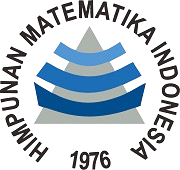Development of Problem-Based Senior High School Mathematics Learning Tools with a Culturally Responsive Teaching Approach
DOI:
https://doi.org/10.30736/voj.v6i2.1037Keywords:
Learning Tools, Problem-Based Learning, Culturally Responsive TeachingAbstract
This development research aims to produce valid, practical, and effective senior high school mathematics learning tools through problem-based learning with a Culturally Responsive Teaching approach. The research employed a 4-D model, consisting of the Define, Design, Develop, and Disseminate stages. The research subjects were 36 students in Class X-4 of SMAN 3 Lumajang for the 2022/2023 academic year. The learning tools outcomes included teaching modules, students’ worksheets (LKPD), student activity observation sheets, and test questions. The established criteria revealed that the learning tools outcomes were valid, effective, and practical. Hopefully, further research could develop more varied learning tools regarding materials, learning models, and integrated culture.
Downloads
References
Arif, I. H., Lukman, A., & Tuara, Z. I. 2021. Penerapan Pendekatan Culturally Responsive Teaching Terintegrasi Etnokimia dalam Mengembangkan Keterampilan Siswa Abad 21 pada Materi Hidrolisis di MAN 1 TIKEP. Jurnal Ilmiah Wahana Pendidikan, 7(2), 194–204. https://doi.org/10.5281/zenodo.4661844
Depdiknas. 2004. Kurikulum Standar Kompetensi. Jakarta: Depdiknas.
Djonomiarjo, T. 2019. Pengaruh Model Problem Based Learning Terhadap Hasil Belajar. Aksara: Jurnal Ilmu Pendidikan Nonformal, 5(1), 39–46. https://doi.org/10.37905/aksara.5.1.39-46.2019
Fauzia, H. A. 2018. Penerapan Model Pembelajaran Problem Based Learning untuk Meningkatkan Hasil Berlajar Matematika SD. Jurnal Primary, 7(1), 40–47. https://doi.org/10.55215/pedagogia.v14i2.6611
Hobri. 2010. Metodologi Penelitian Pengembangan. Jember: Pena Salsabila.
Indrianawati, I., & Wahjudi, E. 2014. Studi Komparasi Hasil Belajar Siswa Menggunakan Model PBL dan Model Pembelajaran Kooperatif Tipe STAD. Jurnal Pendidikan Akuntansi (JPAK), 1–11.
Lubis, M. A., & Azizan, N. 2018. Penerapan Model Pembelajaran Problem Based Learning untuk Meningkatkan Hasil Belajar Matematika di SMP Muhammadiyah 07 Medan Perjuangan Tahun Pelajaran 2018/2019. Logaritma, 6(2), 150–163.
Maryono, Sinulingga, K., Derlina, & Sirait, R. 2021. Pengembangan Perangkat Pembelajaran Fisika Berbasis Kultur Budaya Jawa Melalui Pendekatan Culturally Responsive Teaching. Jurnal Pendidikan Fisika, 10(1), 13–24. http://jurnal.unimed.ac.id/2012/index.php/jpf
Masril, M., Jalinus, N., Jama, J., & Dakhi, O. 2020. Implementasi Pembelajaran Berbasis Masalah pada Kurikulum 2013 di SMK Negeri 2 Padang. Konstruktivisme : Jurnal Pendidikan Dan Pembelajaran, 12(1), 12–25. https://doi.org/10.35457/konstruk.v12i1.956
Masruroh, H., & Fathani, A. H. 2024. Pengembangan Perangkat Pembelajaran Matematika Berbasis Etnomatematika Rumah Adat Suku Osing Banyuwangi. Jurnal Pedagogik, 7(1), 73–80.
Ngalim Purwanto, M. 1992. Psikologi Pendidikan. Bandung: Remaja Rosdakarya.
Satriani. 2016. Meningkatkan Hasil Belajar Siswa pada Pokok Bahasan Rantai Makanan dengan Menggunakan Metode Picture and Picture di Kelas IV SDN 1 Labuan Lobo Kabupaten Tolitoli. Jurnal Kreatif Tadulako, 4(9), 120–131. http://digilib.unila.ac.id/4949/15/BAB II.pdf
Setiyawan, H. 2017. Pembelajaran Matematika Model PBL (Problem Based Learning) pada Mata Pelajaran Matematika Materi Luas Bidang Pada Siswa Kelas III SD. INOVASI : Jurnal Humaniora, Sains, Dan Pengajaran, XIX(1), 8–17. https://erepository.uwks.ac.id/276
Sinaga, W., Parhusip, B. H., Tarigan, R., & Sitepu, S. 2021. Perkembangan Matematika dalam Filsafat dan Aliran Formalisme yang Terkandung dalam Filsafat Matematika. Sepren: Journal of Mathematics Education and Applied, 2(2), 17–22. https://doi.org/10.36655/sepren.v2i2.508
Thiagarajan, S., Semmel, D. S., & Semmel, M. I. 1974. Instructional Development for Training Teachers of Exceptional Children: A Sourcebook. Indiana University. https://doi.org/https://doi.org/10.1016/0022-4405(76)90066-2
Downloads
Published
How to Cite
Issue
Section
License
Copyright (c) 2024 Abdul Halim Fathani, Ismi Nurafdila Pangestu

This work is licensed under a Creative Commons Attribution-NonCommercial-ShareAlike 4.0 International License.
Copyright:
Authors who publish their manuscripts in this Journal agree to the following conditions:
- Copyright of any article on Vygotsky: Jurnal Pendidikan Matematika dan Matematika is held solely by the author under the Creative Commons Attribution 4.0 International license (CC BY NC SA).
- Authors can submit papers separately, arrange non-exclusive distribution of manuscripts that have been published in this journal into other versions (e.g. sending to the author's institutional repository, publication in a book, etc.) by acknowledging that the manuscript has been published for the first time in Vygotsky: Jurnal Pendidikan Matematika dan Matematika.
License:
Vygotsky: Jurnal Pendidikan Matematika dan Matematika is published under the terms of the Creative Commons Attribution 4.0 International License (CC BY NC SA). This license permits anyone to copy and redistribute this material in any form or format, compile, modify and develop this material for any purpose as long as it is not for commercial purposes. Additionally, anyone must provide credit and distribute contributions under the license of the creator of the original work.







